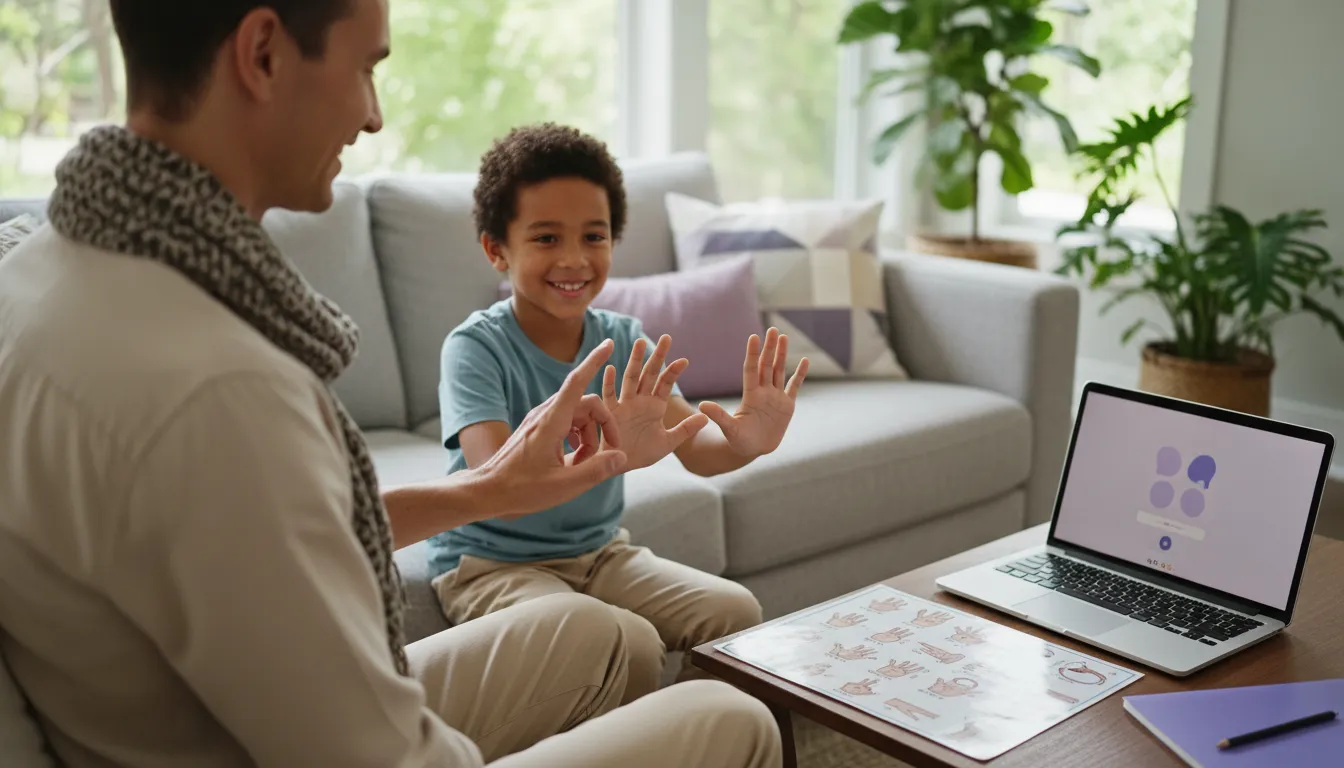Building vocabulary words for 4th graders doesn't have to happen only at the kitchen table with flashcards and workbooks. Real progress often happens when new words are used during moments of discovery, play, and conversation.
This guide highlights useful vocabulary for fourth graders and offers ideas for practicing them in enjoyable ways. Let’s explore how families can support language growth at home, with help from flexible resources like Outschool that bring learning to life.
Why vocabulary matters in 4th-grade homeschooling
When you’re guiding learning at home, vocabulary is one of the most valuable tools you can give your child. Around fourth grade, words stop being just something to decode; they become the key to how your child understands and explains bigger ideas. Here’s why building vocabulary deserves attention in your homeschool:
- Helps with reading independence: A strong vocabulary makes it easier for your child to tackle new books on their own, so reading time can shift from sounding out words to enjoying and understanding the story.
- Supports writing and communication: The more words your learner knows, the more clearly they can share their thoughts in journals, essays, or even casual conversations at home.
- Strengthens subject learning: Understanding key terms makes it easier to follow lessons and connect ideas across areas like math, science, and history.
- Builds confidence in daily life: Knowing how to say what they mean helps your child speak up more often, whether in a homeschool co-op, a family discussion, or new social settings.
For homeschooling families, vocabulary isn’t just an academic skill; it’s the foundation that helps your child move smoothly into more advanced learning across every subject.
Essential vocabulary words for 4th graders
Building a strong foundation with essential 4th-grade vocabulary words means choosing terms that serve multiple purposes: supporting academic success, enriching conversations, and connecting to your family's adventures. The most effective approach combines academic terms with content-specific vocabulary that connects to your family's adventures.
- Focus on high-impact academic terms like "analyze," "evidence," "compare," and "investigate" that boost comprehension across all subjects.
- Include science and social studies vocabulary such as "adapt," "habitat," "region," and "community" that enhance field trip discussions and nature explorations.
- Choose field trip and project vocabulary like "collaborate," "observe," "contribute," and "reflect" that come up naturally during community projects and hands-on learning.
- Select versatile terms with multiple meanings, including "scale," "current," "matter," and "solution," to help learners understand how context shapes language.
- Incorporate curiosity-driven vocabulary such as "fascinating," "perspective," and "tradition" that spark meaningful family discussions about your discoveries.
- Add character and emotion terms like "determined," "resilient," and "compassionate" that support social-emotional learning during real-world experiences.
Making vocabulary learning fun and engaging at home
Vocabulary practice doesn’t always have to feel like a lesson. When it’s tied to games, creative projects, and conversations, kids are more likely to remember and use new words naturally. Here are some engaging ways to bring vocabulary practice into your homeschool routine.
Word games
Using gamification and turning vocabulary into play keeps kids motivated and eager to participate.
- Play charades where each person acts out a word.
- Create a bingo board filled with vocabulary words to mark as you hear them used.
- Make crossword or word search puzzles from the current word list.
Creative writing
Writing gives kids the chance to use new words in meaningful ways.
- Challenge them to write a short story that includes three or more new words.
- Try poetry or silly rhymes that highlight vocabulary in fun, unexpected ways.
- Keep a rotating “word of the day” journal where they write one sentence daily.
Discussion time
Conversations are one of the best places to practice words naturally.
- Ask your child to explain a daily event using a vocabulary word.
- Hold a mini family debate where they use their new words to support ideas.
- Encourage them to teach the word’s meaning back to you, as if they’re the teacher.
Mixing structured games with open-ended practice keeps vocabulary learning fresh. The more your child sees words appear in different settings, the more confident they’ll feel using them.
Effective strategies for teaching vocabulary words to 4th graders
Strong vocabulary habits develop best when they’re woven into your homeschool day in intentional, flexible ways. Here are some strategies that can help:
- Teach context clues explicitly so your learner becomes an independent word detective who can figure out meanings from the sentences around new words.
- Create visual word maps that connect vocabulary to definitions, synonyms, and examples, giving kids a clear picture of how words relate to one another.
- Use spaced repetition by revisiting words across different subjects and activities to reinforce learning naturally.
- Incorporate multisensory techniques by letting kinesthetic learners act out words, auditory learners discuss meanings, and visual learners draw or chart them, matching each child’s learning style.
- Adapt for neurodivergent learners with strategies like color-coding, movement breaks, or linking vocabulary to favorite interests, ensuring word practice feels accessible and engaging.
- Encourage discussion and questioning during family conversations or community activities, helping your child practice new words in authentic settings.
When these approaches become part of daily life, vocabulary learning feels less like memorization and more like a natural extension of your child’s curiosity.
Frequently asked questions (FAQs) about 4th-grade vocabulary at home
These frequently asked questions about 4th-grade vocabulary address practical concerns about building your learner's word knowledge while keeping the experience engaging and meaningful.
How can I tell if a word is too advanced for my child?
If your learner struggles to use a word naturally after repeated practice, it may be a sign to keep it in light exposure only for now and revisit later when they’re ready.
How many words should a fourth grader know?
By fourth grade, children typically recognize and understand several thousand words, though exact numbers vary depending on exposure and learning experiences. What matters most is not hitting a specific total, but how comfortably your child can use and apply new vocabulary in reading, writing, and conversations. Every learner progresses differently, and growth over time is the best measure.
Should I prioritize academic words or everyday words?
Both matter. Academic vocabulary supports schoolwork across subjects, while everyday words build confidence in conversations, storytelling, and real-world interactions.
How does a strong vocabulary help 4th graders succeed in reading and writing?
A rich vocabulary directly improves reading comprehension because learners can understand more complex texts without getting stuck on unfamiliar words. When writing, students with varied vocabularies can express their ideas more precisely and persuasively, moving beyond basic words to create engaging, detailed compositions.
This foundation supports success across all subjects, from understanding science concepts to analyzing historical events, and connects beautifully with interactive language arts classes that bring these skills to life.
Can digital tools help with vocabulary practice?
Yes. Apps, interactive games, and online resources can be fun additions, especially when you want variety or need independent activities for your learner.
The role of vocabulary in lifelong learning
Strong vocabulary skills open the door to better reading, writing, and communication, but they also give your child the confidence to engage with the world. Each new word becomes part of the foundation for deeper learning and richer conversations.
Outschool supports this growth by offering live and self-paced classes that make word learning fun and approachable. Parents can choose from a wide range of subjects and activities that encourage kids to use language in creative, meaningful ways, making vocabulary a natural part of their homeschooling journey.






.svg)
.svg)







